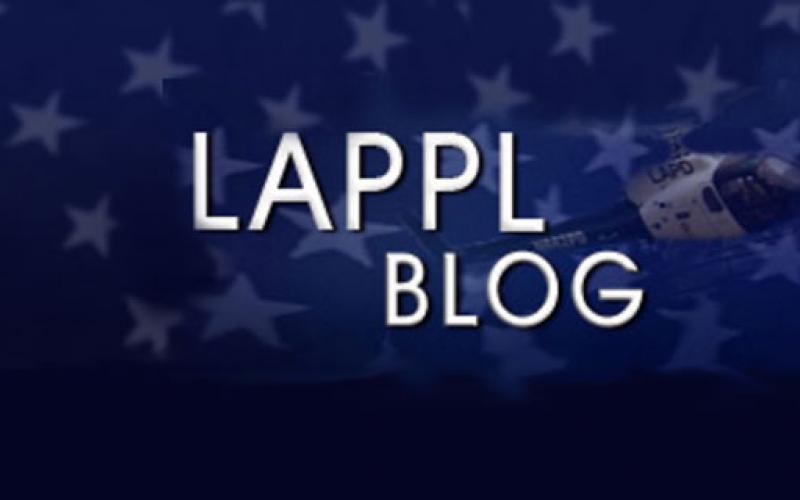The following article by John Tennant, SJPOA General Counsel, was originally posted on the San Jose Police Officers' Association website on March 29, 2011 and is reposted here with permission from the Association.
Almost a quarter of a century ago, in the fall of 1987 on a rainy Saturday afternoon in Cambridge, Massachusetts, I sat in a law school classroom as part of a symposium put on by the Harvard Labor Law Project. The subject was the state of labor law in the U.S. as the century was drawing to a close. While the title, “Harvard Labor Law Project,” sounds grand, in reality it was a rag-tag collection of a handful of idealistic and idiosyncratic students at Harvard Law School who had an affinity for labor unions. We were far and away a minority in a student body of whom the vast majority would go on to practice corporate law.
One of the speakers was the then-vice president of the United Mineworkers of America, Cecil Roberts. He addressed us in somber tones about the state of organized labor, and something he said in particular seared into my then 24-year-old memory. It was this, his advice to any would-be labor lawyers: “I fear you are preparing for a profession that may no longer exist. There may not be any such thing as ‘labor law’ in the future.” I suppose that at that moment I was hooked. I now knew what I wanted to do with my life: become a union labor lawyer. I was a romantic after all, and the old adage about the “only causes worth fighting for are those that are already lost” proved irresistible. Just how bad things could get from there, I did not – I could not – fully comprehend.
In 1987, it didn’t seem possible to imagine organized labor as being even more on its knees than it was at that time. President Reagan’s firing of striking air control workers (the PATCO union members) had set the tone for government and industry alike: unions were now public enemy number one. Henceforth, it was to be open warfare on organized workers, and I knew precisely where my loyalties lay. With under 15% of American workers belonging to unions – down from the historic highpoint of 28.3% in 1954 – how much farther could we fall?
Fast forward to our present day: the total percentage of unionized workers in America has dropped to less than 12%. If you subtract public sector workers from that figure, you arrive at the sobering realization that under 7% of the private-sector workforce belongs to a union. Without public sector workers, the “folks who brought you the weekend” – aka, the labor movement – would seem to be on life support. And with Wisconsin’s recent gutting of collective bargaining laws for the overwhelming majority of the state’s public workers and other states considering doing the same, Cecil Roberts’s grim prophecy seems that much closer to becoming a reality.
“Organized labor fueled the expansion of the middle class after World War II. Unions forged a link between soaring productivity and rising paychecks. [B]reaking unions today decouples that link tomorrow. Many employers will take their cue from the public sector and slice private-sector wages and benefits even more. Even those workers who currently have little could have a lot less. Moreover, lower wages translate into reduced purchasing power, slowing the recovery and reducing revenue for the state.”
Much of the current rage against public employee unions stems, of course, from those beleaguered private sector workers who aren’t unionized and understandably envy what they see as the handsome wages and retirement benefits – handsome in comparison to what they receive – that public workers get. But whittling public workers down to size, as it were, by hobbling their unions will not help private sector employees and more likely will make things even worse. As UC Berkeley Professor Harley Shaiken, a labor expert, has written,
To be sure, many will tell you that they really don’t mean to take away public workers’ collective bargaining rights. They insist that in fact it’s “pension reform” they’re after, not the dismantling of labor law. Indeed, the San Jose Mercury News took pains to emphasize that notwithstanding its support last year for a measure that sorely weakened police and firefighters’ rights to arbitrate labor contract disputes, its editorial board nonetheless finds Wisconsin’s current behavior toward public employee unions “reprehensible” and “cynical.” (Mercury News Editorial, Feb. 22, 2011.)
The Mercury News editors have either inadvertently missed or intentionally ignored the obvious: for unionized workers who lack the right to strike (like police and firefighters), arbitration is the means by which some semblance of bargaining parity is achieved. Without either a right to strike or a right to arbitrate over an employer’s actions, collective bargaining becomes little more than collective begging. And that is not anything approaching what we might think of as a just “labor law.”
While the measure that weakened arbitration for San Jose’s public safety workers was different in degree from what Wisconsin and other states are seeking to do right now, it was no different in kind, and the Mercury News – along with all the other critics of public employee benefits who attempt to distance themselves from Wisconsin – ought to recognize precisely whose cause they are championing. It is that of Wisconsin and the other states who threaten to undo one of America’s greatest achievements for the betterment of the working class: union labor law.
“Roll the Union On . . .”
John Tennant has served as general counsel to the San Jose Police Officers' Association since 1998. A frequent lecturer on the rights of public employees, John has given seminars to labor and management representatives alike on public sector labor laws, primarily those that govern police officers and other public safety employees.











